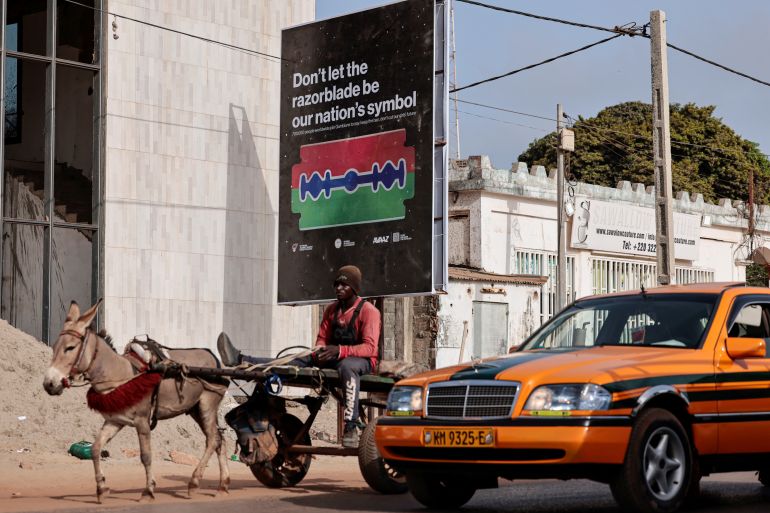Gambia’s parliament upholds ban on female genital mutilation
MPs vote to kill the Women’s (Amendment) Bill 2024, which had sought to decriminalise the practice of female circumcision.
A man rides a cart past a poster advocating for an end to female genital mutilation (FGM), in Banjul, Gambia on June 6, 2024. [Zohra Bensemra/Reuters]Published On 15 Jul 202415 Jul 2024
Gambian lawmakers have voted to uphold a 2015 ban on female genital mutilation (FGM), rejecting a controversial bill seeking to overturn the law after months of heated debate and international pressure.
The Women’s (Amendment) Bill 2024, which had sought to decriminalise the practice of female circumcision, had passed a second reading in March with only five out of 53 lawmakers voting against it, raising concerns among rights groups that The Gambia would become the first country to reverse a ban on the practice.
Keep reading
list of 3 itemsend of list
The landmark 2015 ban on FGM made the practice punishable by up to three years in prison.
Lawmakers on Monday voted again on each of the bill’s clauses before a third and final reading scheduled for July 24, with a majority voting against each clause.
That prompted National Assembly Speaker Fabakary Tombong Jatta to stop the bill moving forward to the final reading.
“The [National] Assembly cannot be engaged in such a futile exercise as to allow the bill to proceed to a third reading,” Jatta said after the votes.
“The bill is rejected and the legislative process exhausted.”
The World Health Organization says FGM has no health benefits and can lead to excessive bleeding, shock, psychological problems and even death.
